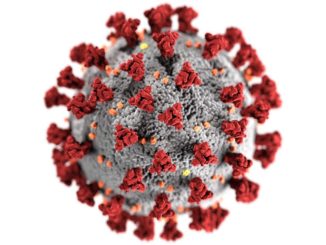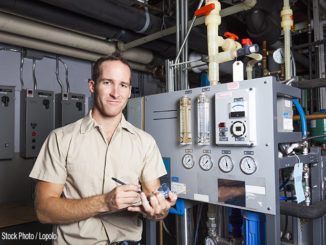
The Insulation Energy Appraisal Program (IEAP) was presented by National Insulation Association (NIA) at TIAC’s annual conference in Toronto last year, and is set to bring the popular course back to Canada this fall. Participants at the 2018 conference in Banff can look forward to two days of education and resulting accreditation on conducting insulation energy appraisals in a variety of contexts.
Graduates come away with solid and robust knowledge of how to identify and report on the ways a properly selected, specified, designed, and maintained insulation system can save on costs and improve system efficiency.
They learn to quantify the amount of energy and cost a building loses with its existing insulation system and demonstrate the ways in which a more efficient system could save energy, reduce fuel costs, improve process control and efficiency, and reduce GHG emissions.
Based on a full review comprising visual inspection, interviews, calculations, and analysis, appraisers learned to create a customized report with recommendations for insulation optimization and the potential return on investment (ROI).
Toronto’s course saw 22 graduates, most of whom have spent the last year putting the knowledge into practice and gaining footholds in the industry as providers of knowledge and by proving themselves essential resources to their customer bases.
Dustin Plue. owner of True North Insulation Ltd. in Waterloo, ON, was interviewed by the TIAC Times last year after he completed the course. He reported feeling excited about what he had learned, and was anticipating applying the knowledge in the real world.
“The most important thing that I learned at the IEAP course was how to use the 3E Plus Program to calculate my customers’ cost savings and emissions reduction when insulation is applied to mechanical systems,” he said.
Plue expected the information he learned would help the business expand and reach a wider customer base as the company planned to offer insulation energy appraisals as a service to help customers better understand the benefits of mechanical insulation.
The course covered all of the areas it promised, he says, and at a depth that gave all participants tangible, practical information to put into practice. “The course was definitely challenging as a whole,” said Plue, “but that being said I definitely took a lot more away from it because of that.”
Participant feedback was unanimously positive—some suggested a longer course, pre-reads, and explanations on certain course components, and felt eld time using the course material would help build confidence.
Another of the course’s graduates, Andrew Fenwick, technical sales representative with All Therm Services, says the IEAP course was enjoyable and included a good group of industry members keen to expand their knowledge.
“In addition, the instructor knew the business and the course material thoroughly,” he says. “Those factors made for a very engaging learning experience.”
The facilitators formatted the course and learning material in an easy to follow way and the instructor ensured that all the participants were on the same page and commenced learning from a common ground and understanding.
Participants were hard pressed to find any kind of problem with the course and its material. “The class work was concise and applicable,” says Fenwick. “The only thing that would improve the course would be some real world training; taking the theory to practice. Hands-on training on an actual site and being able to use the instruments and tools that we had learned about would have taken the training to the next level.”
The training has had benefits for the distributor even though they haven’t yet had clients take advantage of the offer to conduct an energy appraisal. “I have had some interest expressed to me to do so and have been able to position myself as a resource for my clients,” says Fenwick. “That positioning as a resource has meant being a source of information, providing superior customer service, and, of course, solidifying my clients’ confidence in knowing that they can approach their customers’ energy needs with support from me.”
Moving forward, there is no question the course and subsequent accreditation as a certified energy appraiser has value and great potential for distributors, manufacturers, and contractors alike, so long as ample opportunities exist to practice the skills and keep the learning fresh.
“If you want to make it even more useful to your business, you just have to ensure that you’re continually using the skills you learned and looking for opportunities to apply your knowledge,” says Fenwick.
“I would definitely recommend this program. It provides a greater knowledge of insulation application, and the ability to prove value to end users of that application will benefit individuals, the companies that they work for, and the insulation industry as a whole.”
Randy St. Jacques, sales excellence manager, North America, for Roxul Technical Insulation, said the course was presented in an easy to follow, relevant format that t his group perfectly. He says the program’s outcome has been useful to the group since taking the course because 3E Plus fits well with how the team provides technical support to customers. “For instance,” he says, “we use it to estimate Rockwool for thickness, the bulk of which is for personal protection.”
He recommends the course to anyone looking for a simple, effective way to enhance technical support on the job and suggests participants have the 3E Plus program loaded into their computers prior to attending to be prepared for a hands- on, interactive learning experience.
“The more educational courses TIAC can offer to its members the better,” said Plue. “This course would most bene t contractors but manufacturers and distributers would get some benefit as well.”
Conference participants in Banff will learn the IEAP September 5-6, prior to the conference’s official kick-off. Be sure to connect with participants to find out what they learned and plan to attend this program in the future.



